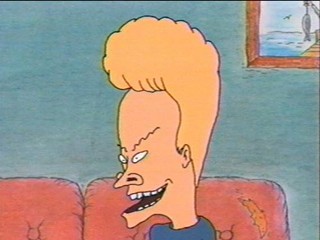So, what's the status of the UA cheerleading program?
Right now, we have about 24 members. We have more girls than guys, and I'd like to have more guys on the team. We're in the process of recruiting for next year (2004-2005), but we're looking to add more guys for this season. The students range from 17 to 22 years in age. There are varied skill levels from basic to advanced. It's a great group. I've only been working with them (for less than two weeks), but they're motivated and willing to work a lot.
Is it good to have more guys or girls on the team, or should the numbers be even?
Right now, we have 10 guys and 14 girls, and you generally like it to be even. Typically, on a coed team, you have partners, a guy and a girl.
What kind of personal qualities does a good cheerleader have?
The qualities can honestly vary from competitive squads to noncompetitive squads. They really have to be driven and willing to work a ton of hours--more than any other sport. Unfortunately, they don't reap the benefits that some of the other athletes do. It's not the university's fault; cheerleading's not an NCAA sport. Cheerleading is a sport that has progressed quickly in the last few years. There's always a lot to learn, because skills have increased. É You have to be very athletic; this is the sport with the fourth-most injuries. You also have to be focused and have a lot of interpersonal skills, including trust. If you're three levels high, you have to trust the people holding you and the people around you.
What is the difference between a competitive squad and a noncompetitive squad?
When you're competitive, on top of your school responsibilities--meaning appearances and cheering for games--you have the competition to go through. There's only the one a year. But I was putting in three hours (of practice) in the morning, going to a game, and three hours after the game. When you're noncompetitive, the responsibilities are solely for the university. I am perfectly OK with that; it allows the students to have a bit more of a traditional college atmosphere. It allows the cheerleaders time for work, school, fraternities and sororities.
Are there any plans to make the UA squad competitive?
No. This is solely the university's decision. They want to keep the squad solely focused on games and crowd involvement. To be honest, when you compete, you keep your focus more on that and less on the crowd. But I told the university that if they ever decided to take it to the next level, I can get them there.
Do the cheerleaders get scholarships?
It's strictly volunteer work, if you want to call it that. But they do get benefits. They can work out in the athlete weight room, and they have access to the training room. They also travel to all the away football games and to all the basketball and volleyball games. They get a lot of things not offered to all people in college.
How do you coach a mascot, exactly?
I look over them, but I don't teach them how to be a mascot--but you can always tell when a person can be a mascot. They learn most of the stuff at camp, where they kind of pass on to each other the different mascot techniques, if you want to call them that.
What kind of personality traits make for good mascots?
Mascots are typically great people. They're outgoing and they can get along with anyone. They're people you want to be around all the time. They're just fun people.
OK, one last question, The UA football team's not projected to be very good this year. Is it hard to cheer for a bad team?
I don't think so. I think that no matter what goes on, the university has such great support, and the fans won't turn their backs on them just because they're having a bad season. Granted, it can be frustrating, but won't affect our training, and the cheerleaders will be as good as they can be.




